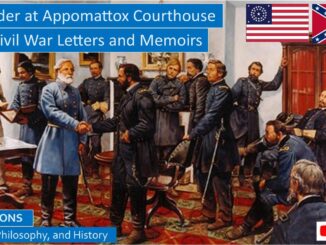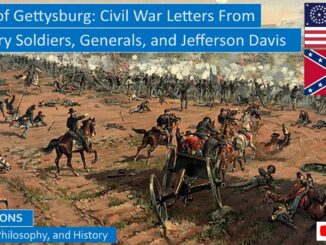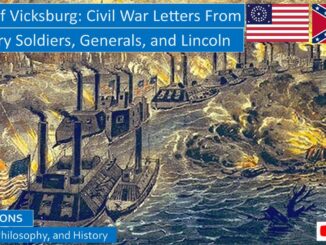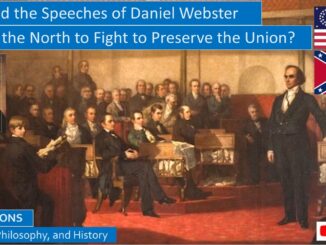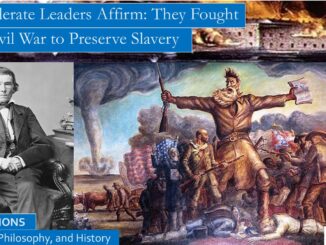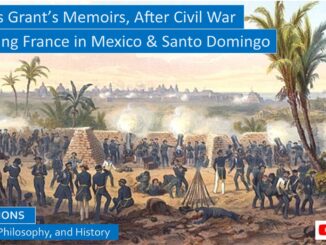
General Grant’s Memoirs, Civil War Diplomacy, Post-War Events in Mexico and Santo Domingo
Grant assures us: “The cause of the Great War of the Rebellion against the United States will have to be attributed to slavery. For some years before the war began, it was a trite saying among some politicians,” including Lincoln in his House Divided Speech, “that a state half slave and half free cannot exist. All must become slave or all free, or the state will go down.” “Slavery was an institution that required unusual guarantees for its security wherever it existed.” Grant then criticizes the Fugitive Slave Law, in force before the Civil War, that compelled Northerners to help apprehend and return runaway slaves. […]

